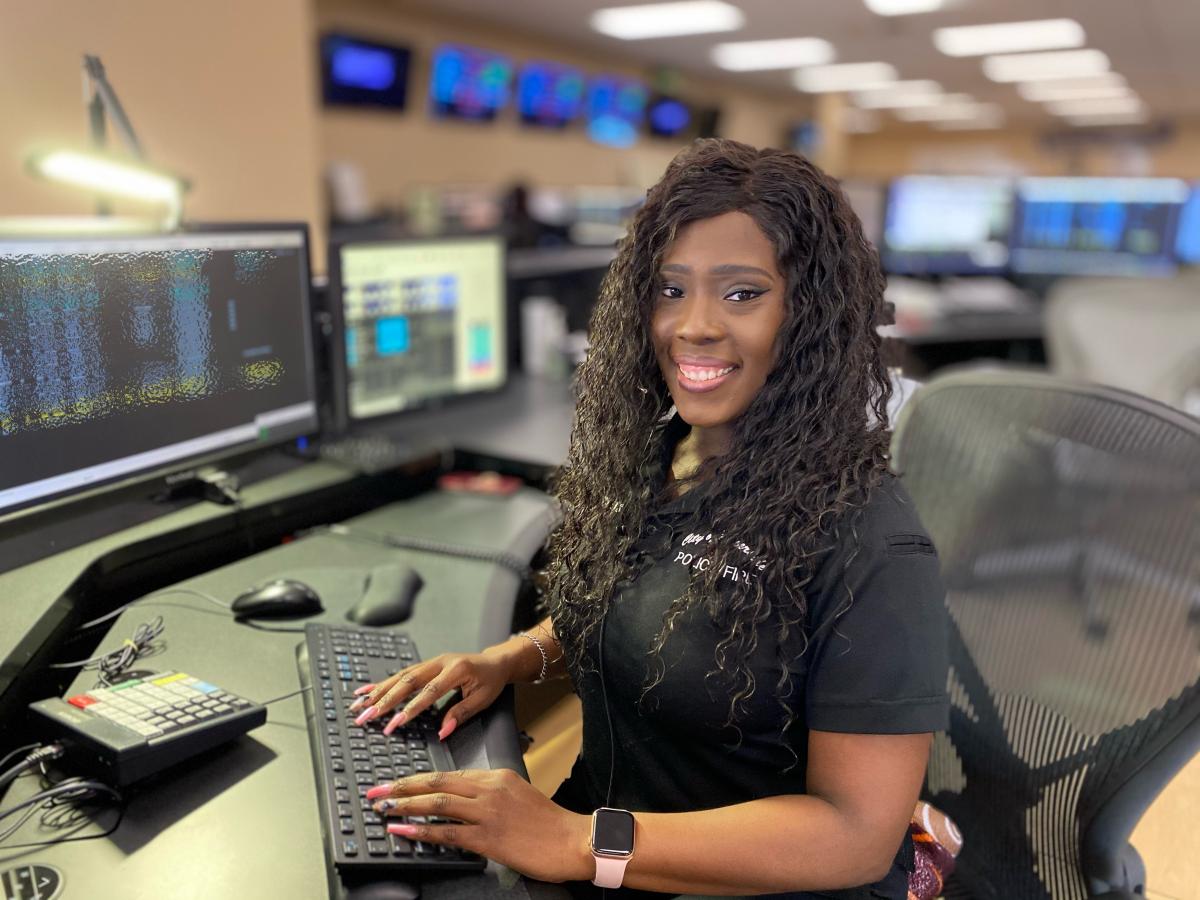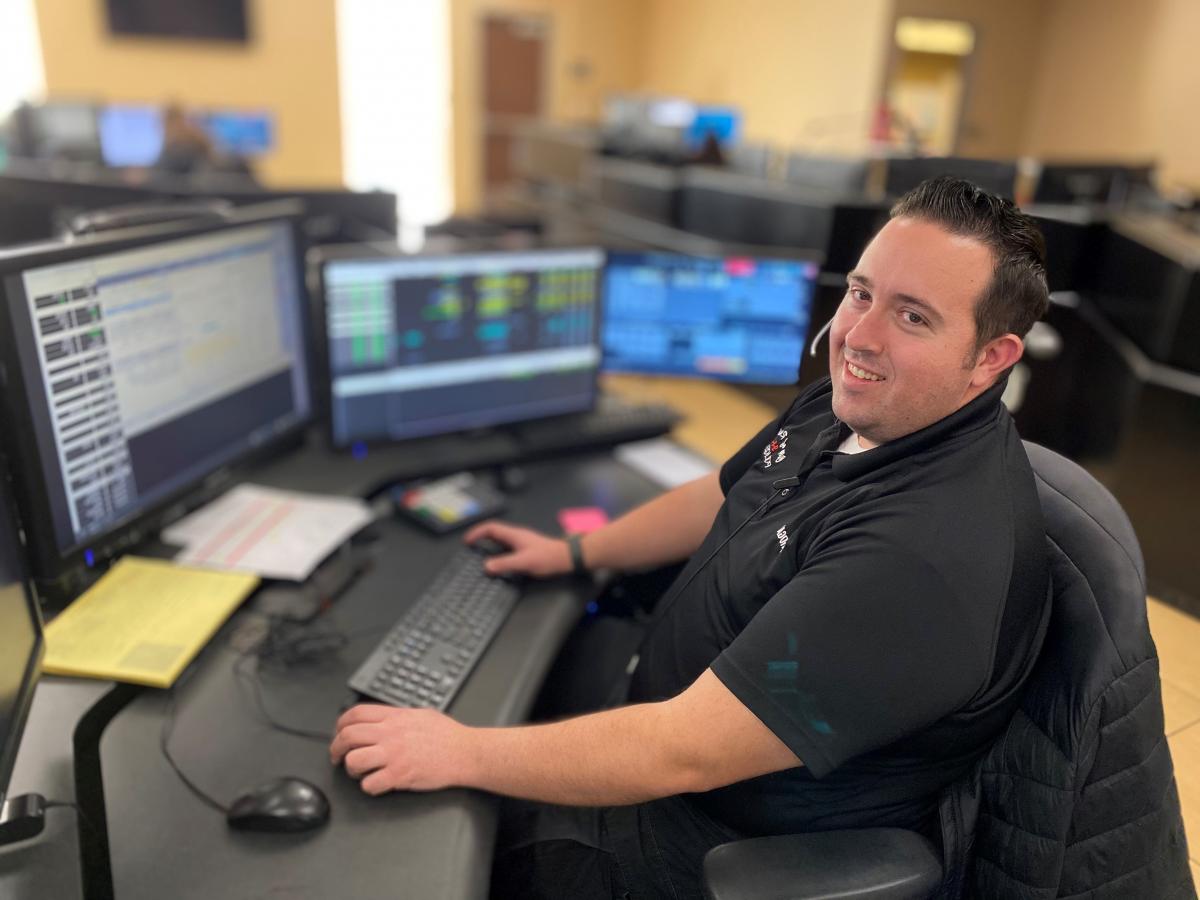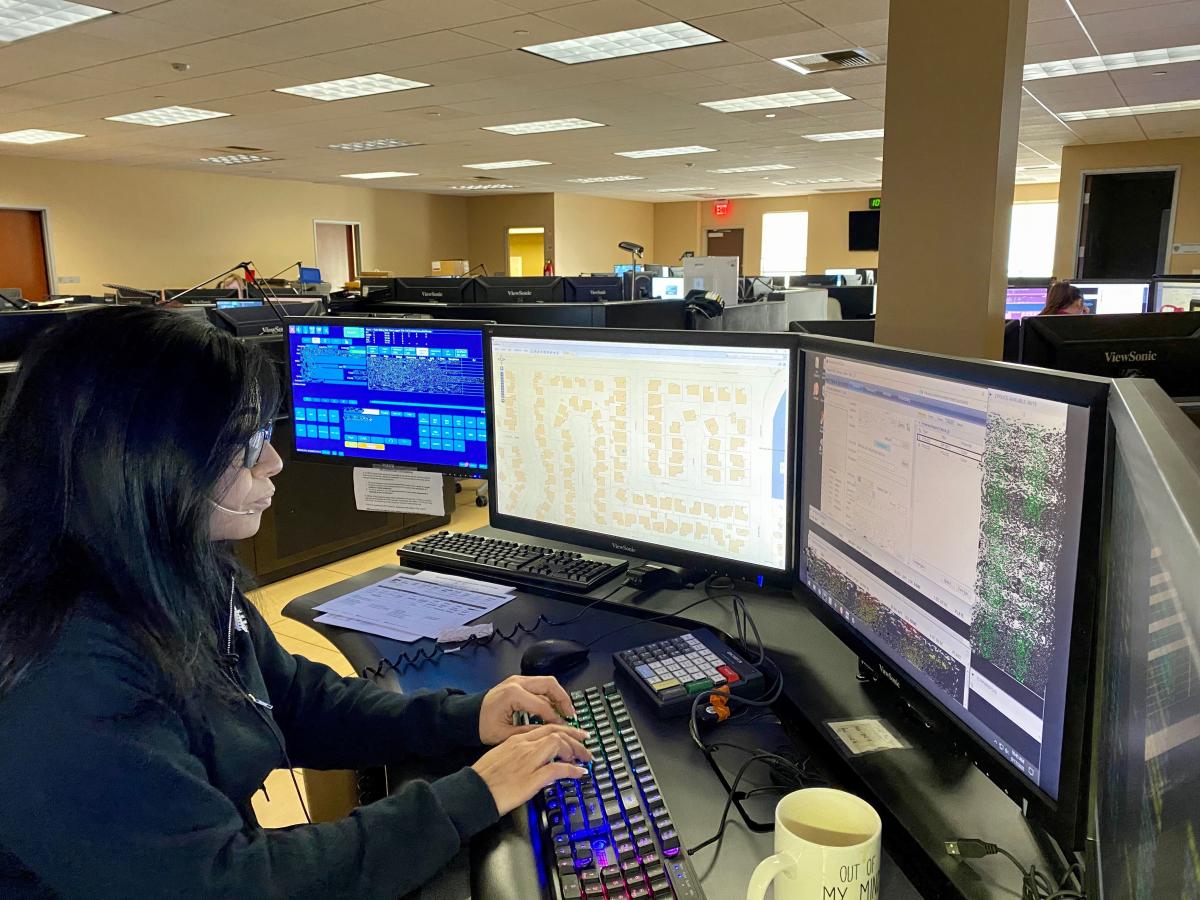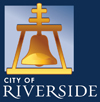
The City of Riverside Public-Safety Communications Center is staffed by a team of highly trained communications specialists. Public Safety Dispatchers are trained to handle a variety of Police, Fire and Medical emergencies.
The Public Safety Dispatcher serves as the primary link between the public and the emergency services for police, fire, and medical aid. Dispatchers are expected to receive emergency and non-emergency calls from the public for the Police and Fire Departments, along with other City Departments. Each call for service is evaluated and the appropriate response of City personnel and equipment is initiated.
This work requires fast, efficient and accurate receiving, dispatching and processing of communications from and to police and fire personnel. Most of this work is accomplished using a Computer Aided Dispatch (CAD) system.
Dispatchers are required to speak clearly and concisely, react quickly, efficiently and calmly in emergency situations. They must also be able to adopt an effective course of action, type at a minimum speed of 35 WPM, and dispatch public safety equipment in a coordinated manner. It is imperative that a dispatcher be able to relay messages exactly as received and maintain accurate written radio logs.

The Center is staffed by 45 Public Safety Dispatchers and 6 Communications Supervisors. The Center has served as the City's Public Safety Communications Center for both the Police and Fire Departments since 1984, when the Dispatch Centers for both Departments merged to form one centralized answering point for all emergency services. Public-Safety Communications personnel handle over 500,000 telephone calls annually.
Emergency Call Information
In order to help best serve the public, the Communications Center asks that you use the 9-1-1 emergency line only when there is an immediate risk to life or property. Some examples of times when it is appropriate to dial 9-1-1 are:
- Any medical emergency
- “In-progress” or “just-occurred” crimes
- Any crime involving weapons (guns, knives, clubs, broken bottles)
- Domestic violence, “in-progress” or threatened
- Any vehicle accident involving injuries
- Anytime a suspect is still in or near the area
WHEN YOU CALL 9-1-1:
To help dispatchers to process and prioritize your call and to provide the responding units with the necessary information, all callers are asked a standard set of questions. Your dispatcher will need to know:

- Location of the problem.Before the 9-1-1 dispatcher can help you, he/she must know the address or location where help is needed. In some cases, you may be calling about a problem that is at a location different than the location you are calling from, or a problem that is occurring outside of the City of Riverside, requiring your call to be transferred to the appropriate, handling agency. Be sure to always give your telephone number and extension to the dispatcher, in case there is a need to call you back for additional information or a better location.
Important Note:If you are calling 9-1-1 on a cellular telephone, from a location within the City of Riverside, your call should properly route to the Riverside Public Safety Communications Center, and the dispatcher will still need to know the exact location where help is needed. If you are on or near a freeway or highway it is possible your call may be answered by the California Highway Patrol (CHP) and your call then transferred to Riverside City Public Safety Communications. If your call is answered by Riverside Public Safety Communications and you are calling about a problem occurring on a freeway or highway, or a location that is outside of the City of Riverside jurisdiction, you will be referred or transferred to the appropriate, handling agency.
- Type of problem. The Dispatcher will need to know if you are reporting an emergency or something that is not an emergency. You will be asked for a basic description of what occurred and, if applicable...
- When the incident happened.
- A description of the suspect, including clothing.
- Whether a weapon was involved and, if so, what type.
- A description and direction of travel of a vehicle if one was involved.
- Give the Dispatcher all of the information available to you. Do not leave out information because you don’t think that it is important. The more we know about an incident, the more effective we can be in helping you.
- If you call 9-1-1 by mistake, DO NOT HANG UP! Tell the Dispatcher that you called by mistake and that you do not have an emergency. Any time a Dispatcher receives a 9-1-1 “hang up,” the caller must be contacted to be sure that no actual emergency exists. This may require that an officer be needlessly dispatched to your home or office to ensure the well being of all persons there.
- If a person does not speak English the 9-1-1 system allows calls to be transferred to an interpreter who can translate many different languages.
- If a person is using a Telecommunications Device for the Deaf (TDD) the 9-1-1 system will automatically detect the TDD equipment and open a TDD display screen for the Dispatcher when the 9-1-1 call is answered. The Dispatcher will require the same information as listed in 1 through 4 above.
- Text-to-911. Our dispatch center is Text-to-911 enabled; however, the quickest and more efficient communication is still via voice communication due to the delay in information transferring during a typed conversation via text. When using Text-to-911, it is still important to provide the exact location and address where help is needed. Any time during a Text-to-911 call, you may be asked to call 9-1-1 directly, if it is possible.
- Medical Emergencies. Our dispatchers are trained in Emergency Medical Dispatch (EMD) which allows for them to provide a triage response and provide critical support while responders are en route. When calling in for medical related help, the dispatcher will ask the caller a series of scripted questions. It is important to know this does not delay sending help, and is used to help identify the best possible response for the patient.
Non-Emergency Call Information
If you are calling to report a crime that has already occurred at some time in the past, or to ask a question, please call the Non-Emergency number of (951) 354-2007. The dispatch center is available 24 hours a day to handle calls for the Police and Fire Departments. Some examples of times when it is appropriate to use the Non-Emergency number are:
- Past auto theft
- Past vehicle burglary
- Past theft of property
- Noise problems (parties, music, etc.)*
*Response to Loud Parties: If you are calling regarding a loud or large party, gathering or event, you may be asked if you want to be contacted by the responding police officer or wish to prosecute. However, contact with the responding officer or your desire to prosecute may not be necessary for the responding officer to resolve the problem through enforcement action. If the responding police officer determines the incident is a threat to the public peace, health, safety, or general welfare, the officer can take enforcement action in order to deter additional responses without contacting you or obtaining your signature on a private person’s arrest form.
You can obtain general information about services provided by the City of Riverside by dialing 3-1-1. If you need to ask a Public Safety Dispatcher a question, you may call (951) 354-2007.

In addition to handling calls for service, the Communications personnel have been involved with P.O.S.T. (California Peace Officers Standards and Training) in the development of a Public Safety Dispatcher Training Curriculum. They continue to influence communications training throughout the state of California.
For more information regarding our Communications Bureau or 9-1-1 services, you may e-mail Communications Bureau Manager Brandt.
See Employment Opportunities for Lateral and Trainee Public-Safety Dispatchers.
